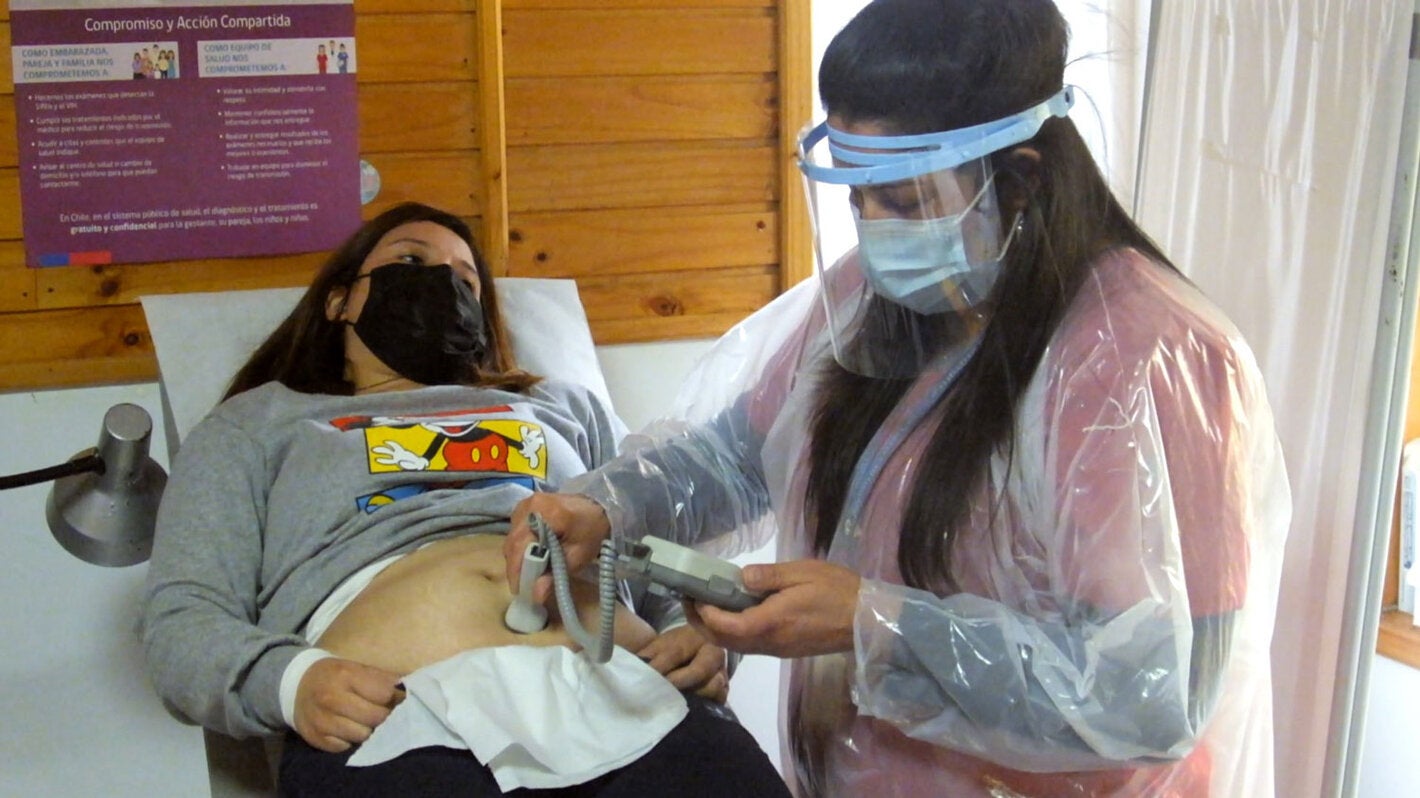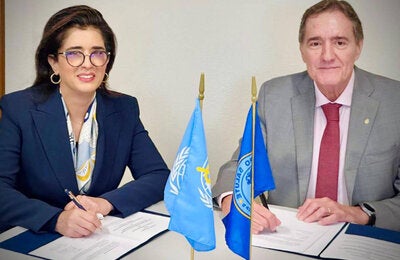
More than 270,000 pregnant women have been infected with COVID-19 in the Americas, and more than 2,600 have died from the virus. In Mexico and Colombia, COVID-19 became the leading cause of maternal deaths in 2021.
Washington, DC, September 8, 2021 (PAHO) – Warning that COVID-19 represents a serious risk for pregnant women in Latin America and the Caribbean, Pan American Health Organization (PAHO) Director Carissa F. Etienne urged countries to prioritize expectant and lactating mothers for vaccinations.
“We know that if pregnant women get sick, they have a higher risk of developing serious COVID symptoms, and more frequently require ventilation and intensive care, when compared to women who aren’t pregnant,” she said during her weekly press briefing. “They also have a higher chance of delivering their baby early or pre-maturely.”
“So, let me be clear,” she continued, “PAHO recommends that all pregnant women, after their first trimester as well as women who are breastfeeding, receive the COVID-19 vaccine.” She added that COVID vaccines approved by WHO are safe to administer during pregnancy and are a critical tool to protect expectant mothers during the pandemic.
More than 270,000 pregnant women have become sick with COVID in the Americas so far, and more than 2,600 have died from the virus. The problem is particularly acute in Mexico and Colombia, where COVID-19 has become the leading cause of maternal deaths in 2021.
At the same time, Mexico, Argentina, and Brazil account for half of all COVID deaths among pregnant women in the region.
“For the past three decades, Latin America and the Caribbean struggled to reduce maternal mortality,” Dr. Etienne said. “Now the pandemic threatens to wipe away 20 years of hard-fought gains.”
The pandemic also threatens health care for pregnant women. At least 40 percent of countries in the region have reported disruptions to maternal and newborn care amid the pandemic.
“These disruptions have become more widespread during this second year of the pandemic,” Dr. Etienne said. Some countries, including Belize and Guatemala, report that pregnancy-related care has been disrupted in over half of health sites.
In addition to prioritizing pregnant and lactating women for COVID-19 vaccines, the Director also urged countries to ensure their access to health services.
“And finally, it is critical that pregnant women maintain the public health measures proven effective against this virus,” she said, recommending that they wear masks, keep social distance, limit contact with people outside of their households and avoid indoor gatherings.
Turning to the toll that the pandemic is taking on the Americas, Dr. Etienne said, “Today we are seeing nearly double the number of infections reported this time last year.”
She reported nearly 1.5 million cases and more than 22,000 COVID-related deaths in the Americas in the past week.
While new infections are declining in the Caribbean, COVID-19-related deaths are increasing on many islands, including Sint Marteen, Jamaica, and Puerto Rico.
COVID-19 infections are rising in Costa Rica, Guatemala, and Belize. At the same time, infections continue to drop across South America, although there is a slight increase in cases in Venezuela.
Vaccination campaigns are progressing despite limited supplies, Dr. Etienne reported. So far, 28 percent of people in Latin America and the Caribbean have been fully vaccinated, with significant differences from country to country.
“While we should celebrate that Canada, Chile and Uruguay have fully vaccinated over two thirds of their populations, we cannot forget that one fourth of countries in our region have yet to vaccinate 20% of their people,” Dr. Etienne said. “And in some places, coverage is much lower.”
She pointed out that Guatemala and Nicaragua are below 10% coverage, and in Venezuela, just over 11% of people have been fully vaccinated. In Haiti, less than one percent of the population has been protected.
“PAHO is helping to channel donations from countries with excess doses, but we need more vaccines to save lives in the hardest-hit corners of Latin America and the Caribbean,” Dr. Etienne said. She added PAHO is working to expand vaccine access by using its Revolving Fund to procure doses for member states and through a longer-term initiative to produce mRNA vaccines in the region. “These actions, combined with increased global supplies of vaccines that are expected later this year and in 2022, will help us reduce inequalities."
MEDIA CONTACTS
Sebastián Oliel
Ashley Baldwin
Daniel Epstein
Nancy Nusser



